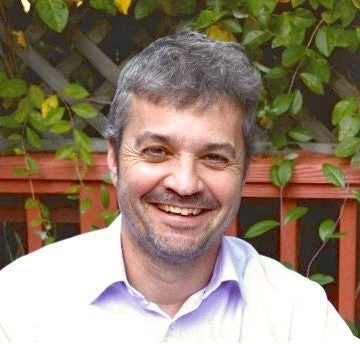 Investing in Quality Infrastructure for a Green, Inclusive and Resilient Recovery
Investing in Quality Infrastructure for a Green, Inclusive and Resilient Recovery
Quality Infrastructure Investment, or QII, is getting a lot of attention these days, in large part because of its value in promoting green, inclusive, resilient development.
To meet growing demand, the World Bank's QII Partnership is launching a Massive Open Online Course (MOOC) to help policymakers, development institutions, civil society, and private sector investors learn how infrastructure investment can contribute to post-pandemic economic recovery in a sustainable way.
The course runs from January 24 to February 24, 2022. What exactly do we mean by QII? In 2019, the G-20 established six non-binding principles to guide infrastructure investment strategically. The QII principles recognize that infrastructure is a significant driver of economic prosperity. They specifically address challenges facing infrastructure development today by maximizing the positive impact of infrastructure, raising economic efficiency, integrating environmental and social considerations, building resilience against disasters, and strengthening infrastructure governance. The principles provide a framework that puts these goals within reach.
What exactly is driving this interest in QII?
First, infrastructure is essential for meeting the 17 Sustainable Development Goals (SDGs). Three of them deal with infrastructure directly—clean water and sanitation (SDG 6), affordable and clean energy (SDG 7), and infrastructure (SDG 9). But many more can only be achieved with the support of infrastructure. For example, ending hunger (SDG 2) requires rural infrastructure for irrigation and transportation of agricultural products. Achieving good health and well-being (SDG 3) requires power and water for hospitals and clinics. And urban infrastructure is central to creating sustainable cities and communities (SDG 11).
Second, green, sustainable infrastructure is crucial in addressing the twin crises that have been hammering us over the last two years—the COVID-10 pandemic and the accelerating impacts of climate change. Power and transportation infrastructure, for example, contribute significantly to CO2 emissions. They are also vulnerable to extreme weather events, such as floods and hurricanes. Future infrastructure must be designed to cut down emissions and be resilient to the impacts of climate change. The pandemic highlighted the need for digital infrastructure to keep communities, governments, and businesses running. The economic shocks resulting from measures to contain COVID-19 rely on infrastructure to restore supply chain disruptions, stimulate economic growth, and create jobs.
Third, there is much more to infrastructure than concrete, pipes, and power lines. We have to look further. Infrastructure assets must be economically efficient at every stage of the life cycle to contribute to growth. They must be well-governed to ensure that suitable infrastructure projects are developed and in a transparent way. Good governance is also vital for building community support and minimizing the corrosive impact of corruption.
The MOOC pulls all these pieces together so that practitioners understand how QII can maximize the economic impact of infrastructure projects and bring us closer to achieving the SDGs. The course runs for five weeks and requires a commitment of approximately four hours per week. Participants will gain a solid understanding of how applying the QII Principles contribute to green, resilient, and inclusive development.
The course is funded by the government of Japan through the QII Partnership, which was established to raise awareness of the quality dimensions of infrastructure in developing countries.
Click here to learn more about the QII Partnership. Register for the Quality Infrastructure Investment MOOC at https://bit.ly/QII-MOOC. No prior knowledge of infrastructure is necessary—anyone with an interest in infrastructure development will find the MOOC useful and interesting. I hope to see you there!


Join the Conversation